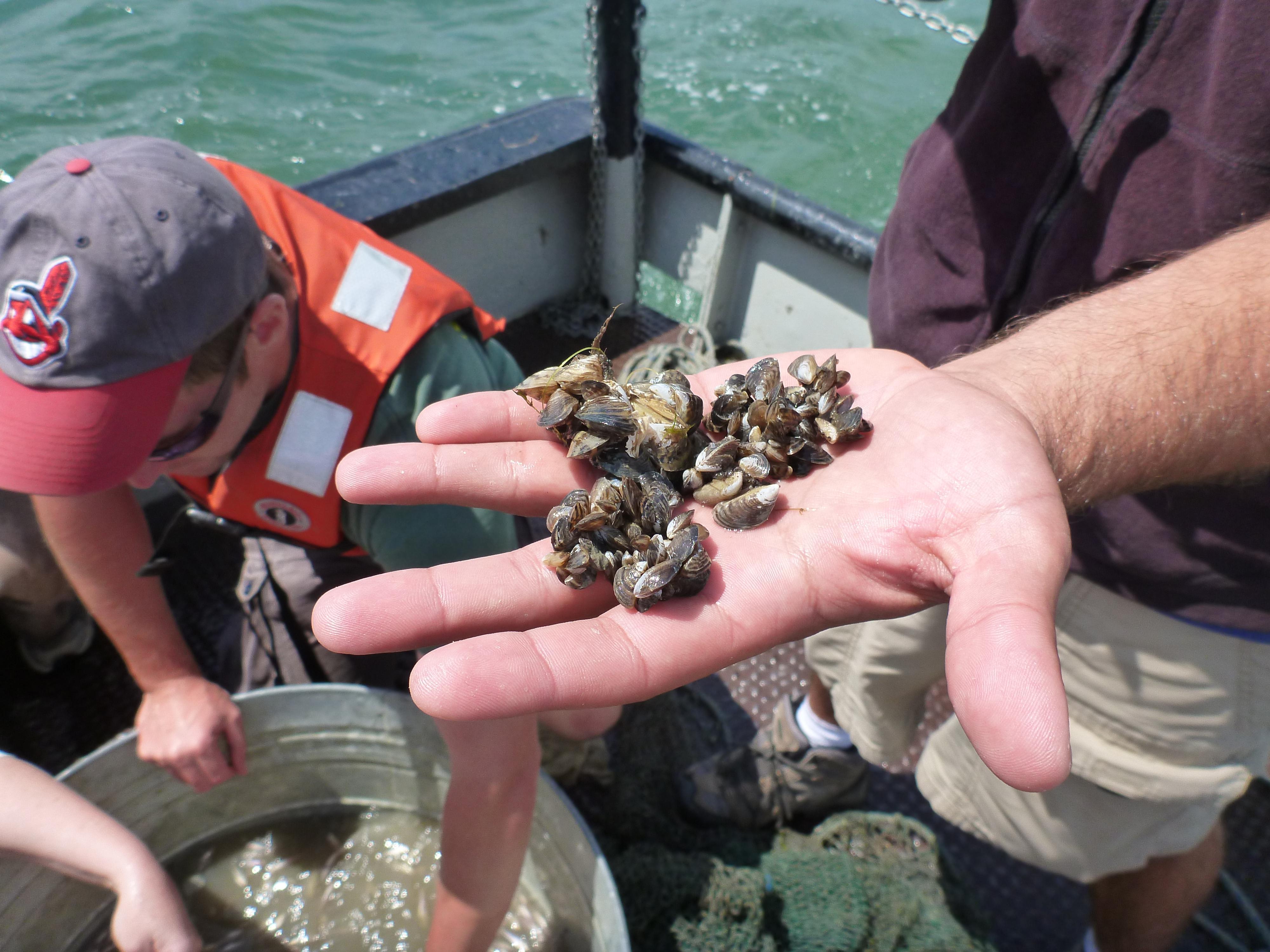When an invasive species first moves into a new environment, it's impossible to predict what the consequences will be. Sometimes an invader simply finds its own niche and causes minimal disruption — like dandelions. Others arrive on the scene and seem to destroy everything they touch, triggering a cascade of consequences that never seems to end. The tiny thumbnail-sized shellfish called Quagga and zebra mussels are perfect examples of this kind of invasion.

Quagga mussels found during a Great Lakes education workshop.
Lyndsey Manzo/Ohio Sea Grant
Quagga Mussels: Tiny Invaders, Big Consequences
Quagga mussels (and their zebra mussel cousins) are the poster children for out-of-control invasive species. When these tiny mussels were dumped into Lake Michigan in 1988 from the ballast water of a foreign container ship, few people could imagine the trouble they'd ultimately cause.
Today, just 20 years later, they carpet beaches with shells. They've caused billions of dollars of damage to boats, docks and property. At the Cook Nuclear Power Plant in Bridgman, Michigan, zebra and Quagga mussels regularly clog water intake pipes needed for power generation. Estimates run as high as 3 billion dollars a year for power plant maintenance across the Midwest.
These tiny invaders are also disrupting the food chain of the Great Lakes, causing fish to disappear and dangerous algae to bloom. They even create conditions for botulism to work its way through the food chain, killing thousands of birds each season. And in 2007, the mussels invaded the previously un-infested southwest.
Who would ever have thought that a mussel the size of a quarter could cause such widespread damage? What else is out there waiting to wreak this kind of widespread havoc?

Stan Wong, a concessions manager at Lake Chabot, removes quagga mussels from a boat during a Watercraft Inspection Training course at Lake Mead, Nevada, Nov. 14, 2012.
Christie Vanover/Lake Mead National Recreation Area
Prevention Is The Best Defense
Once these aggressive and dangerous new invaders like quaggas, New Zealand mudsnails, Asian Green crabs and Asian carp cross our borders there will be no going back. They will be in Oregon to stay. Prevention is our only defense. And while some regulation and emergency check stations can help, effective prevention comes down to the individual.
In the case of quagga mussels, there are currently few laws in place to keep someone from launching a dirty boat loaded with mussels into one of Oregon's most beautiful rivers or lakes. Clean your boat as soon as you leave any river, lake or water body. If you can't clean it there, clean it in a place far from rivers, streams and lakes before launching your boat again. Take a few minutes to clean your boat and you could be saving your favorite fishing hole or recreational playground from being invaded.